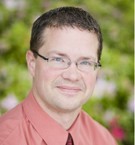I was recently reflecting on my doctoral training and I realized that I learned a few things (ten, to be precise) beyond the actual subject matter of my discipline. For starters, I learned that footnotes can be overdone. I should confess to you that I am a very slow learner and that I often learn lessons by first doing something the wrong way. For example, my recent book has almost 1000 footnotes.[1] Now thatŌĆÖs just ridiculous, and perhaps pretentious. But worse than that, I now think that it is unhelpful. In my newly-formed opinion, footnotes (or other formats of documentation) are necessary only when you are giving credit where it is due. Generally, footnotes are not the place for commentary or supplementary remarks. If something is worth saying, it should be worked into the main text of the study, not reduced to a smaller font in the margins.
I have also learned that a doctorate is only a hoop. By this I mean to say that academic degrees (and theses and dissertations) should not be viewed as an end but as a means to an end. LetŌĆÖs face it: dissertations rarely change the worldŌĆöeven if they get published and are read by important people. Rather, dissertations and degrees are ideally just a means toward gainful employment, so that you can do what you really love, like teaching, writing, consulting, etc.
I have also learned that research doesnŌĆÖt pay the bills. Journal articles bring no monetary benefits. Monographs are more costly than profitable. If you want to make money, I recommend that you write novels, not commentaries. You should do research only if you must. That is, you should do it only if you are passionate about it, only if it is your calling, only if you canŌĆÖt help but to do it (I happen to be in this category).
I have also learned that research never ends. Even though I had read Ecclesiastes 12:12 (ŌĆ£the making of many books is without limitŌĆØ), I had not experienced this truth until I engaged in some extensive research. The truth is that no research is ever finished. It is always a work in progress. I have learned to let go of the idea that I will say the definitive word on anything. In my opinion, a scholarly work is complete when it makes a coherent contribution to the discipline. It does not necessarily have to be exhaustive, encyclopedic, or final. It only needs to be ŌĆ£good enough.ŌĆØ
I have also learned that ŌĆ£seasonsŌĆØ are supposed to end. There are times in life when we may need to buckle down and go through difficult experiences for particular purposes. This is a sacrificial choice that we must sometimes make (hopefully in concert with our loved ones). But we must resist the temptation to let a grueling season go on indefinitely or to embark again and again on such seasons as though they are somehow normal.
I have also learned many important things about myself. For example, fathering is more important than dissertating (I have three young kids). Or perhaps this can be reworded for a wider audience by saying that relationships are more important than research.
Another lesson learned is that I am ignorant. I mean that. More knowledge leads to the knowledge that I lack knowledge.
I have also learned that I am dependent on others. Research is never done in a vacuum. Countless people have invested in me and are still investing in me (academically, emotionally, spiritually, etc.).
Finally, I will share that during my doctoral years, it dawned on me that my wife really loves me. More than anyone else, my wife Lori has sacrificed her time, resources, and interests in order to help me flourish. She worked full time while I played at research full time. When she wasnŌĆÖt working she was creating more time for me to do research. I am overwhelmed with gratitude when I recall her selfless expressions of support.
Finally, I am reminded of the Apostle PaulŌĆÖs rhetorical question ŌĆ£What do you have that you did not receive?ŌĆØ (1 Cor 4:7). The truth is that all of my ŌĆ£accomplishmentsŌĆØŌĆöbe they degrees or publications or awards or titlesŌĆöare actually gifts from God. ItŌĆÖs all by grace.
[1] Actually, there are 977 footnotes in Donkeys in the Biblical World (Eisenbrauns, 2011). But why are you reading this futile footnote anyway?
 51┬▄└“
51┬▄└“
.jpg)
.jpg)
.jpg)
